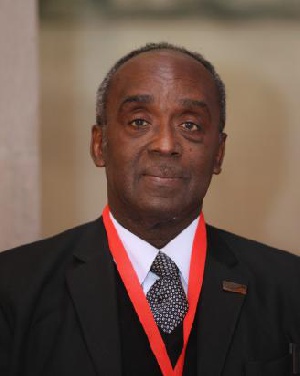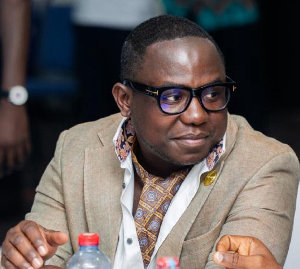The Chairman of University of Ghana Council, Justice Samuel Date-Bah, has said the country needs competition law and policy to ensure its proper functioning in the interest of consumers and producers.
He said it is therefore a legitimate public policy interest to ascertain the health of competition law and policy in the country and West Africa at both the national and sub-regional levels -- including interactions between the national and regional policy process on the issue.
Justice Date-Bah who is also a retired Supreme Court Judge was speaking at a policy roundtable discussion on competition reforms in Ghana organised by CUTS International under the theme “World Competition Day: Are Businesses and Consumers Losing Out Due to Absence of a Functional Competition Regime in Ghana?”
He said the country does not have comprehensive competition legislation, in spite of having had a few draft statutes formulated which were not considered by policymakers as a priority matter.
In addition, he said various pieces of legislations have been passed in the country which have an impact on competition and competitive behaviour in key markets; such as the Public Utilities Regulatory Commission Act,1997 (Act 538) and the Protection against Unfair Competition Act, 2000 (Act 589).
However, he said the country is yet to establish any entity or authority to monitor competition generally in the economy, and take action to arrest malpractices affecting the competitive process.
Dr. Edward Brown, the Director of Policy Advisory Services at the African Centre for Economic Transformation (ACET), said there is need for Ghana's competition law and policy to conform to that of regional competition laws and policies such as those of ECOWAS and UEMOA.
He said regulatory bodies that monitor competition in Ghana must have enough power to deal with cartels. He advised that the process being used to develop the competition policy and law for the country should be participatory enough to capture the views and inputs of all stakeholders, saying the failure to capture and consider all inputs of various stakeholders will render the policy meaningless.
Marnix Segers, Policy Advisor Trade & Private Sector Development for the Netherlands Embassy in Ghana, said since competition goes beyond the borders of the country, the regional perspective should not be missing from Ghana's competition policy.
Mr. Appiah Kusi Adomako, the Centre Coordinator for CUTS Accra, said competition law promotes competition in markets and curbs anti-competitive conducts by firms.
“In a fair and competitive market, there are large numbers of sellers and buyers, variety of quality goods and services for consumers, and free entry and exit for firms. In every market, the producers’ aim is to maximise profit whilst consumers also want to maximise utility.
“Market competition therefore encourages production of goods and services that are desired by consumers, making use of the most cost-effective use of available resources. Therefore, consumers get the best possible choice of goods and services at the lowest possible price.”
Business News of Monday, 9 December 2013
Source: B&FT













